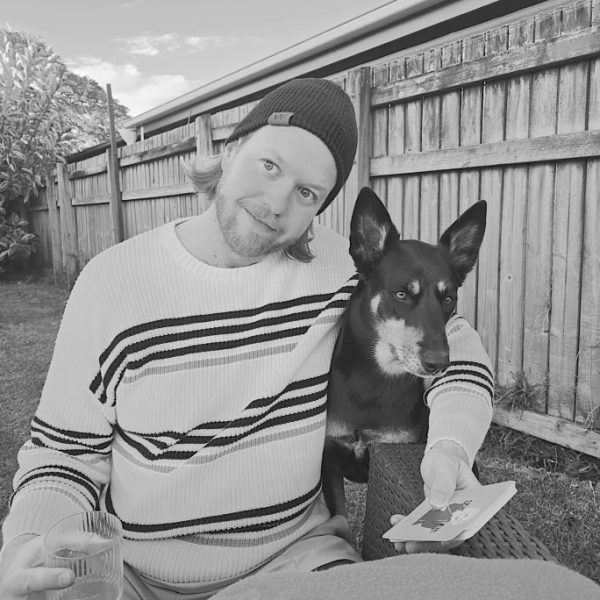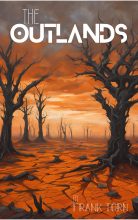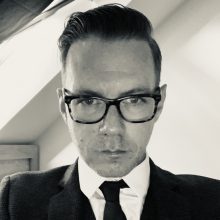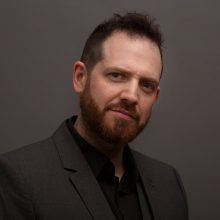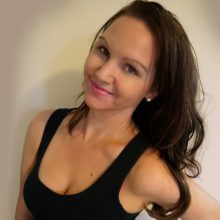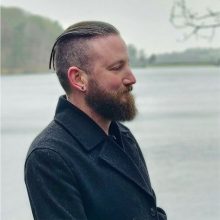The Outlands by Frank Torn
What led you into writing?
Writing started as survival. I’d always been drawn to stories that made sense of chaos, but it wasn’t until life fell apart that I realised words were the only way through. During the COVID years, I spent three months homeless, camping up the coast from New South Wales to Brisbane with my two dogs, Toby and Cletus. Those nights under a torn sky stripped everything unnecessary away. What was left was story—memory, pain, and the stubborn hope that something beautiful could still come from ruin. I started writing seriously after that, and I haven’t stopped since.
How does a typical day look?
Mornings belong to the world—work, bills, and the hum of everyday life. But night is where the real writing happens. I usually start after 9 p.m., when the house goes quiet and the dark feels like a companion. I’ll make tea (or pour whisky), light a single lamp, and write until the clock stops meaning anything. Toby and Cletus curl up beside the desk, snoring through the madness. It’s not glamorous, but it’s honest—and that’s enough.
In what ways do your characters test your abilities?
They refuse to behave. Every time I think I know where a scene is going, they shift it. They speak truths I didn’t mean to admit, or make choices that expose something uncomfortable in myself. Writing them forces me to look closer—to confront things I’d rather avoid. The best characters are the ones who fight back.
What’s your setup?
I write on a small desk pushed against a window that overlooks nothing dramatic—just the fence, a few trees, and the streetlight beyond. But at night, it feels like a portal. I keep notebooks scattered everywhere and a folder on my computer called “the graveyard,” where all my half-finished ideas live until they decide to wake up again. It’s not about the tools—it’s about the headspace. A controlled mess. Stacks of books, notes on scrap paper, empty mugs, and a small photo of Toby and Cletus from our road trip. There’s a candle that burns down faster than I’d like and a dent in the desk where my elbow always lands when I’m thinking. It’s chaos that somehow makes sense.
What lasting effects have your favourite authors had on your writing and style?
Cormac McCarthy taught me that silence can be louder than dialogue. Shirley Jackson showed me that horror is most powerful when it’s polite. Jeff VanderMeer made me see that nature itself can be monstrous and holy at once. And Kazuo Ishiguro reminded me that restraint can ache harder than violence. They each taught me something about beauty in the broken.
What do you do for inspiration?
I walk with my dogs. I listen to the world—the hum of traffic, a stranger’s laughter, the wind shifting before rain. Inspiration doesn’t always announce itself; sometimes it hides in ordinary things. When I’m truly stuck, I drive into the countryside and sit in silence until the noise inside me turns into words again.
What repeating themes do you find yourself pulling into your stories?
Love as rebellion. Guilt as inheritance. The idea that we’re all haunted—by the things we’ve done, and the things we didn’t. I return again and again to the question of what survives us: memory, forgiveness, or something stranger. My characters often walk through ruined landscapes not to escape the past, but to make peace with it.
How do you wind down?
I read, walk the dogs, or watch the sky change. Sometimes I’ll sit outside with a drink, listening to the quiet hum of the neighbourhood. There’s something grounding about small, simple routines after spending hours in the chaos of fiction. Writing takes you deep inside; winding down is how I find my way back out.
What sort of challenges do you regularly overcome while designing your world/setting?
Balance. My worlds often teeter between realism and dream logic, and I have to keep them grounded enough that readers believe—but strange enough that they still feel unsettled. I spend a lot of time on sensory detail: how dust tastes in the air, how silence feels against the skin. Those small, tactile truths are what make even the most surreal world real.
What are you reading at the moment?
Right now, I’m reading The Road by Cormac McCarthy for the twentieth time, and Wuthering Heights for its wild, imperfect love. I like books that feel like storms—dark, beautiful, and impossible to leave untouched by.
What’s the most useful advice you could give to an aspiring author?
Write what keeps you awake at night. Don’t write to impress—write to survive, to understand, to connect. And finish things, even when they’re ugly. You can’t revise a blank page. Most importantly, remember that the world doesn’t owe your story anything—but if you write it honestly, it will find the people who need it.
Tell us about the book you’re promoting.
The Outlands is my debut novel—a dark, dystopian story set in a postwar Australia where trauma bleeds through generations and love becomes the bravest act of all. It follows a family torn apart by violence and the ghosts that follow them across time: a boy named Emiel, a mother named Ethel, and a young man named Bellamy who must face the monster both within and without.
It’s a story about what we inherit, what we destroy, and what we choose to forgive. Equal parts love story, horror, and meditation on survival, The Outlands asks a single question: when the world burns, what part of you still reaches for light?
👋 Hi! I run Author Interviews
As a new writer I found myself itching to contribute to a thriving, creative community, so I made Author Interviews and I've met loads of wonderful people in the process. You can buy my debut fantasy RINGLANDER: THE PATH AND THE WAY from Amazon.
